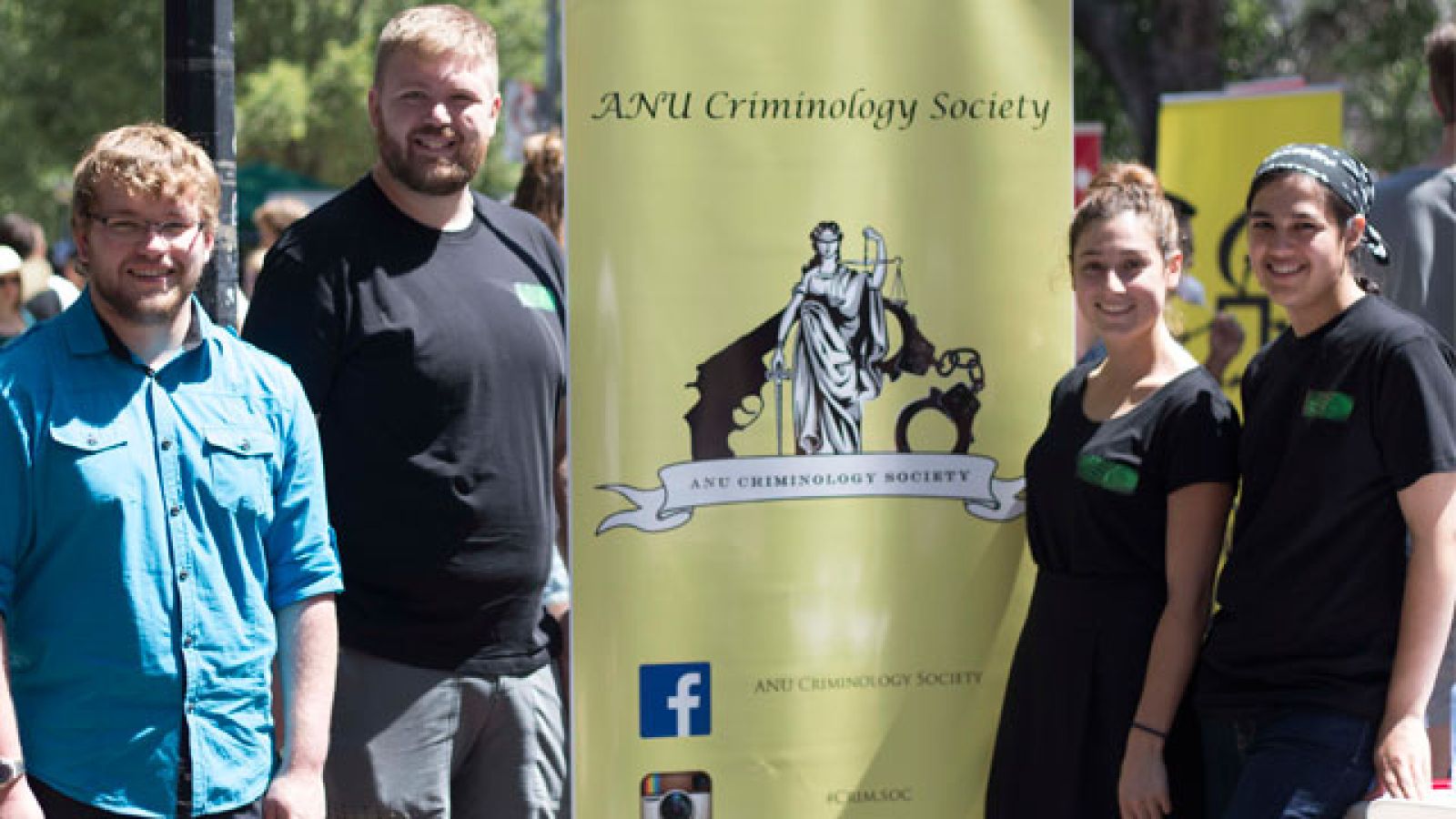Criminology undergraduates studying peers’ wifi and cybercrime risks

ANU Criminology Society students say they enjoy the hands-on experience their degree at ANU provides
Criminology students at The Australian National University are studying their peers’ Wi-Fi internet usage this semester to determine their awareness of online risks.
It’s part of an internship in the ANU Cybercrime Observatory and aims to assess the habits of up to 100 people, most of whom are first-year or new students.
The researchers belong to the ANU Criminology Society and explain they’re using the internship to develop real-world skills they can add to their resumes.
Society president, Katie Skinner, says the study’s first aim is to determine the coverage and usage of campus wi-fi.
“The second, and perhaps more important one, is to determine the risks of cybercrime for both staff and students,” she says.
Skinner, who is undertaking a Bachelor of Criminology/ Bachelor of Psychology double degree, says some students have been wary of participating.
“We don’t look at specific web content, we look at URL data,” the fourth-year student says.
“That allows us to determine if a site is compromised or not. We don’t look at web content, which I guess helps us recruit participants because some of them are worried about some of the websites they visit coming to light.”
Vice-president, Don Maxim, says participants’ web usage will only be recorded when they are logged in to ANU wi-fi using their student ID.
“We let you know every time you log in with your university ID with a prompt that says you’re a part of this research study.”
Data will be stored on disks using a high security encryption and no identifiable data will be published or kept after the study finishes in July, the study’s authors say.
Participants can also opt out any time, Don, a first-year Bachelor of Criminology/ Bachelor of Psychology double degree student, adds.
"As a society, we’re trying to work not only in the fun stuff, but also working on resume-building, academia and trying to bring our society to the next level.
“Rod [Professor Rod Broadhurst] was really kind enough to help us set up this opportunity with him.”
Study lead author, Professor Broadhurst, says experiments will help determine if some students are more vulnerable than others to phishing attacks and other online deceptions.
“The study will help identify the most vulnerable groups, provide recommendations to improve cyber security practices, develop better safety awareness, and improve the quality of cyber-security research.”
Katie says it’s possible the methodology could be applied beyond ANU.
“Because it’s so specific to ANU, I don’t think we’ll be generalising this particular research to other campuses, [but] they might be able to gauge how we’ve conducted this study and apply that to their own institutions.”
Katie says she values the hands-on experiences she receives through her degree and lists class visits to ACT courts, the police watch house and prison in the past year.
“Applying criminological theory to every-day, real world situations makes the content highly relevant not only on a societal level but on a personal level.
“While a research focus is highly important, it's the hands-on experience that equips us with skills that are applicable to the work force and prepares us for our future careers.”
More participants are welcome to join this study. Contact Roderick.broadhurst@anu.edu.au.